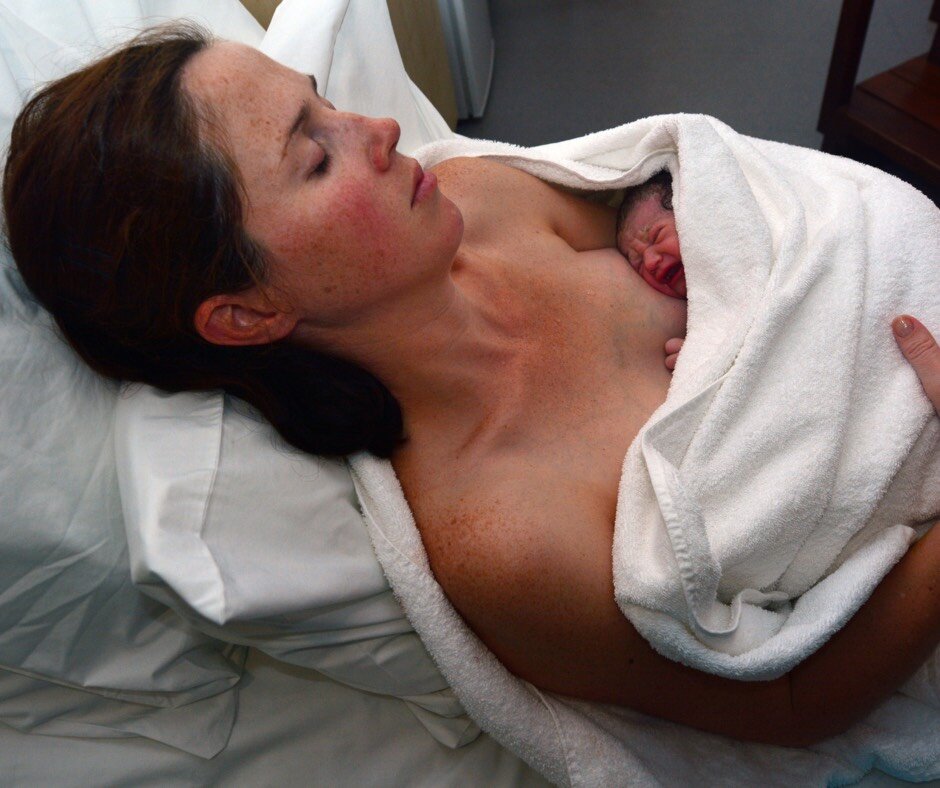Minimizing your risk of birth trauma
Let’s be honest, nobody goes into their birth expecting to have a negative birth experience or come out of it with birth trauma. But it can and does happen.
According to the Prevention and Treatment of Traumatic Childbirth Centre approximately 25-34% of people say their birth experience was traumatic in some form or another. That’s a quarter of birthing people. That’s not a small percentage. But it doesn’t have to be. So how do we set ourselves up in a way that helps us limit the risk of experiencing birth trauma during our births?
Before we go any further let’s take a minute to unpack what birth trauma is. Birth trauma is defined as distress caused to the birthing person during or after childbirth. It can also be defined as an event, with or without injury, where the person giving birth feels they have been stripped of their rights, dignity and was mistreated.
After hearing the percentage of people who experience birth trauma during their birth it lead me to do some digging and research of my own as well as poll in my instagram stories to get some more insight on some of the common causes of birth trauma. Based on the poll I ran and the studies I looked into some of the main causes of birth trauma included:
A circumstance or situation where the birthing person felt like they had no control, no say over what was happening to them, or where they felt their life or their baby’s life was threatened.
Lack of support.
Feeling uncared for.
A lack of communication and/or a care provider who failed to explain procedures, provide information about interventions or used their power to overrule the birthing person’s wishes.
A lack of privacy.
A birth that includes interventions such as forcep or vacuum delivery.
A birth that included an induction.
An emergency cesarean.
A very painful birth experience where the birthing person was not provided or was denied access to proper pain management options.
A baby being placed in the neonatal intensive care unit (NICU).
Previous trauma including birth trauma, trauma during childhood, domestic violence or various forms of abuse such as sexual assault.
A postpartum haemorrhage, postpartum depression or postpartum anxiety.
As a mother myself and a doula I have experienced my fair share of trauma in my life time. One of my goals as a doula is to help set my clients up for success. One of those things includes helping them prepare for birth in a way that helps them minimize the risk of birth trauma. So I’m going to share with you some of the things I chat with my clients about during our prenatals.
10 tips for minimizing birth trauma during your birth:
Create a birth plan: I know a lot of you will read this and say, “you can’t plan or control your birth.” And you’re right, you can’t. But what you can do is create a list of your birth preferences for various circumstances so in the event that one of those circumstances should arise, you not only know your options but also have your preferences laid out. And I’m not talking about one birth plan, I’m talking 2-3 depending on your circumstance or situation. For example; if you are planning a home birth, what are your preferences if you were to birth at home. In the event that the home birth turns into a hospital transfer what would your ideal hospital birth look like and what are your preferences. If you require a cesarean birth, what are your preferences? I can tell you from experience that not knowing your options or flying by the seat of your pants can do a lot more harm emotionally and mentally than good.
Find a supportive care provider: Find a care provider who supports your ideal birth. It’s not good enough now a days to simply have a care provider that says, “ya I support vaginal births,” or “ya I support VBACs”. Do your homework. Look up reviews. Ask them questions. Reach out to other birth workers to get more information. Go shopping for a care provider who will fit your needs and desires for birth. Consider their on call schedule. Do they have a high percentage of attending their patient’s births, do they work with a team of a few doctors or are they on a rotation cycle, meaning you could get any on call doctor when you go into labour. Same goes for midwives.
Pick your location of delivery wisely: Pick a location that fits your needs best, whether that be your home, a birthing centre or a hospital. Go for a hospital tour in your first trimester instead of your last trimester so you have time to make a well educated decision. If you have a special circumstance like you are trying for a VBAC then ask about the hospital’s cesarean rates. You may also consider the hospital’s on call rotation if you have an OB. What do their birth rooms look like? What are the policies, rules and regulations? What pain management options do they have available?
Consider hiring a doula: Having a doula present at your birth has been proven to help with the overall outcome of your birth experience. Consider birth and/or postpartum support to help you navigate birth, help you advocate for the birth experience you desire and help educate you on the options you have available. A doula also helps with pain management options and comes prepared with tools for comfort measure options that hospitals may not offer. They also help hold space during your birth and help you achieve the birth atmosphere you desire for your birth experience.
Proper education: Educating yourself on all things birth and postpartum is a great way to set yourself up for success. Understanding your options and how they can affect your overall birth experience. Education can come in many different forms but finding reputable resources and good quality prenatal education is key. Instead of going through public health look into the local doulas and midwifery clinics to see what prenatal classes are available.
Open communication: Request that your care provider explain every procedure along the way, ask permission and give you time to think about your options before moving forward. Ask them how long you have during your prenatal appointments to ask them questions. You may want a care provider who spends more time explaining things prenatally than a quick in and out visit. Keep in mind this often reflect how communication will be during the birth as well.
Keeping the birth space sacred: Talk to your care provider and doula about privacy and the birth space. Simple things like keeping curtains drawn, keeping a blanket or sheet on during vaginal examinations and limiting how much staff comes in and out of the room can help provide the privacy you may desire for your birth experience. Create a birth environment at home that encompasses all 5 of your senses that you can also do in hospital. For example; you may want to bring a robe to the hospital, use essential oils, have a certain tea you can sip on while in labour or have a music play list you can play.
Create a NICU plan: Most of us go into our birth not needing care from the neonatal intensive care unit. However, it can be very helpful to talk with your partner and create a game plan for what will happen in the event that your baby requires a NICU stay. If you have children already, who will watch your other children? What are the policies in your local hospitals for NICU especially during COVID. Who will stay with baby? If you have animals, who will take care of your animals at home for you? Opening up these conversations can simply create peace of mind.
Seek proper help for any previous traumas: Working through previous traumas and finding healing and having tools to call upon when triggered can help set yourself up for a more positive birth experience. If your previous trauma is birth trauma it’s important to have a conversation with your doula about triggering words or situations so everyone is on the same page and can help you work towards a positive birth experience.
Prepare for postpartum: Don’t wait until you are in the thick of sleep deprivation to try and find help. Remember the acronym N.E.S.T.S when planning for postpartum success. Nutrition, exercise, sleep, time for yourself and support. Make freezer meals ahead of time or plan for family or friends to drop off meals. Exercise can be as simple as going for a 10 minute walk outside to refresh yourself. Create a plan to help you catch up on sleep whether it be someone watch ing the baby while you nap or a partner helping with feedings to allow you extra time to rest at night. Time for yourself to regroup is so important. This can be taking the time to shower and do your hair and make up, it can be reading a book, going to a quiet space, taking a relaxing bath, etc. Having the right support is crucial. Support can come in many different shapes and forms. Finding support systems that work for you and your family is key.
Although birth trauma affects many, there are so many simple ways, we as parents, can prepare for birth in a way that allows us to minimize our risk of birth trauma. As a trained trauma and attachment practitioner and a doula my goal is to help set up parents for success and work through any previous trauma that may be holding you back from having your best birth experience.
Interested in doula services or a trauma processing session? Let’s schedule your FREE phone consultation and chat further. Let’s get you prepared and equipped to have a positive birth experience. I want nothing more than for you to go into your birth experience feeling confident and whole.




